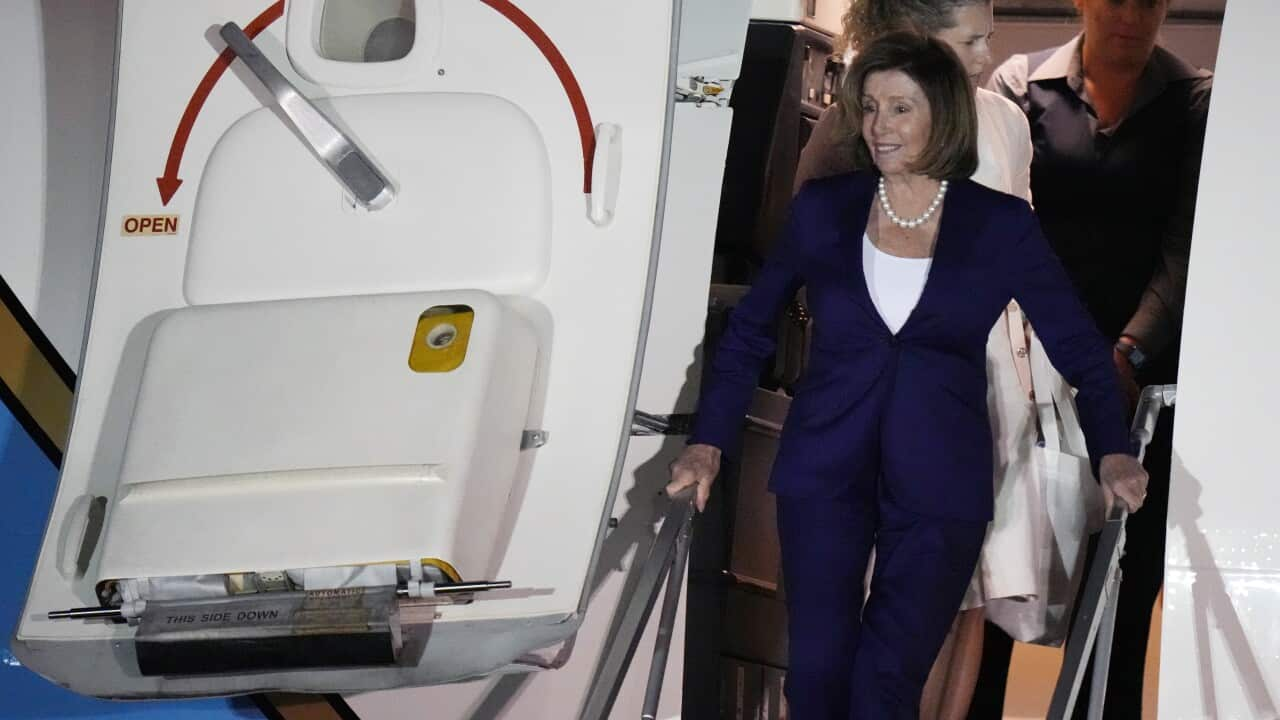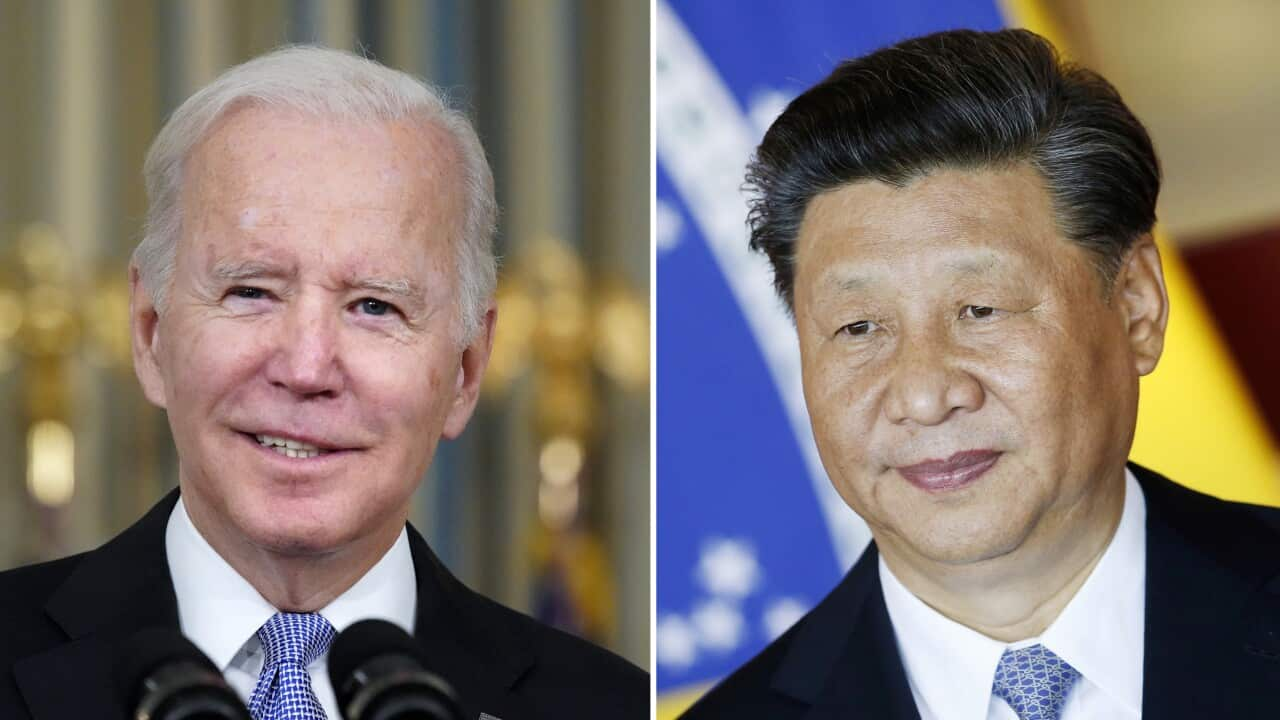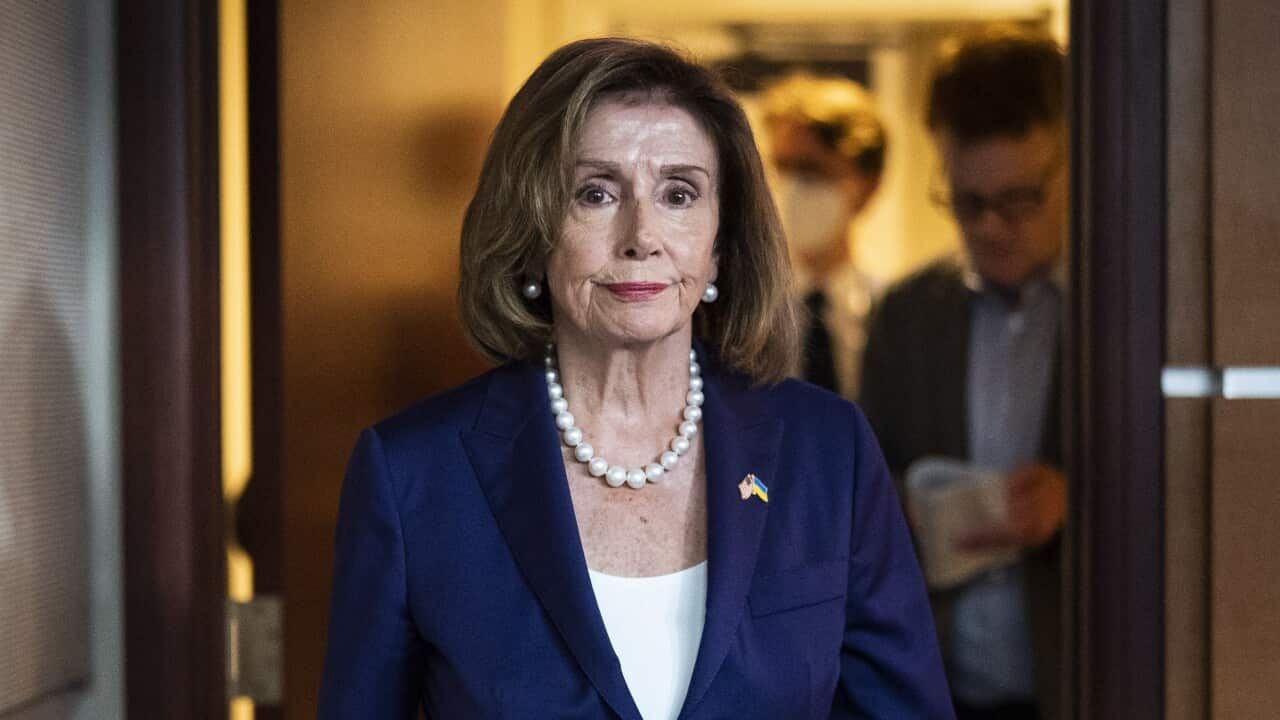Key Points
- China has launched 11 ballistic missiles around Taiwan.
- Nancy Pelosi has arrived in Japan on the last stop of her Asia tour.
The United States said Thursday that China's launch of 11 ballistic missiles around Taiwan was an overreaction to the visit of US House Speaker Nancy Pelosi to Taiwan.
"China has chosen to overreact and use the speaker's visit as a pretext to increase provocative military activity in and around the Taiwan Strait," said White House spokesman John Kirby.
China deployed scores of planes and fired live missiles near Taiwan on Thursday in its biggest drills in the Taiwan Strait, a day after Ms Pelosi made a solidarity trip to the self-ruled island.
China's military confirmed multiple firings of conventional missiles in waters off Taiwan as part of planned exercises in six zones set to run until noon on Sunday.
It activated more than 100 planes, including fighter jets and bombers, and over 10 warships, state broadcaster CCTV said.
Taiwan's defence ministry said it scrambled jets to warn away 22 Chinese fighter aircraft that crossed the Taiwan Strait median line into its air defence zone and said troops fired flares late on Thursday to drive away four drones that flew above the area of its Kinmen islands, off the southeastern coast of China.
It said missiles fired by China flew high into the atmosphere and constituted no threat to it, responding to public concern about whether they passed over the main island of Taiwan.
"The US-Taiwan collusion and provocation will only push Taiwan towards the abyss of disaster, bringing catastrophe to Taiwan compatriots," said a Chinese defence ministry spokesperson.
Responding to the Chinese drills, President Tsai Ing-wen said Taiwan would not provoke conflicts but would firmly defend its sovereignty and national security.
"Taiwan will never be knocked down by challenges," Mr Tsai said in a recorded video message to the people of Taiwan.
To avoid escalating tensions with Beijing any further, the United States postponed a routine test launch of an Air Force Minuteman III intercontinental ballistic missile, the Wall Street Journal reported on Thursday, citing US officials. One official said the delay might last 10 days, the report said.
Nancy Pelosi arrives in Japan
Ms Pelosi arrived in Japan on Thursday for the final stop on her Asian tour, disembarking from her plane at the Yokota Air Base in Tokyo before greeting the US ambassador and other officials with hugs and handshakes.
The 82-year-old politician defied a series of stern threats from China to meet Taiwanese leaders on Wednesday, saying her trip made it "unequivocally clear" that the United States would not abandon a democratic ally.
It is Ms Pelosi's first trip to Japan since 2015, and she arrived from South Korea where her schedule included a visit to the border with nuclear-armed North Korea.
She will meet Prime Minister Fumio Kishida for breakfast on Friday, Japan's foreign ministry said, to discuss the two countries' alliance and issues of shared interest.
Japan, a key US ally, has lodged a diplomatic protest with China over its massive military exercises encircling Taiwan. Just before Ms Pelosi's arrival, Defence Minister Nobuo Kishi said five ballistic missiles fired by China were believed to have landed in Japan's exclusive economic zone.
Parts of Japan's southernmost island region Okinawa are close to Taiwan, as are islets at the centre of a long-running dispute between Tokyo and Beijing.
US President Joe Biden also angered Beijing on a visit to Japan in May, when he said US forces would defend Taiwan militarily if China attempted to take control of the island by force — prompting Beijing to warn that the US was "playing with fire".
Mr Biden and his team insisted at the time that their decades-old approach to Taiwan remained in place, however.
This includes arming the democratic island for its own defence while acknowledging China's legal sovereignty and expressing "strategic ambiguity" on whether American troops would ever intervene if China invaded the territory.
ASEAN ministers warn Taiwan-China tensions could cause open conflict
Southeast Asian foreign ministers urged restraint Thursday as China launched massive military drills off Taiwan, warning the situation risked spiralling into "open conflicts".
Ministers from the 10-member Association of Southeast Asian Nations (ASEAN) meeting in Phnom Penh warned against "provocative action".
The situation "could lead to miscalculation, serious confrontation, open conflicts and unpredictable consequences among major powers", the ministers said in a joint statement published Thursday.
Chinese Foreign Minister Wang Yi is attending the talks along with his US counterpart Antony Blinken, though they are not expected to hold a one-on-one meeting.
At a meeting with ASEAN ministers, Mr Blinken said the United States had contacted China "at every level of government" in recent days to call for calm and stability.
"I hope very much that Beijing will not manufacture a crisis or seek a pretext to increase its aggressive military activity," Mr Blinken said.
"We and countries around the world believe that escalation serves no one and could have unintended consequences that serve no one's interests including ASEAN members and including China."
But Mr Wang, speaking on the sidelines of the ASEAN summit Thursday, said the "flagrant provocation" by United States had set an "egregious precedent."
"If it's not corrected and countered, will the principle of non-interference in internal affairs still exist? Will the international law still be upheld? How can the regional peace be safeguarded?" he said, according to Chinese state media Xinhua.
EU foreign policy chief Josep Borrell, also in Phnom Penh, condemned the Chinese response.
"There is no justification to use a visit as pretext for aggressive military activity in the Taiwan Strait. It is normal and routine for legislators from our countries to travel internationally," he tweeted.
Kung Phoak, Cambodia's deputy foreign minister and ASEAN spokesman, urged both sides to stabilise the situation.
"We hope de-escalation happens... and normalcy returns to the Taiwan Strait," he told reporters.
Ms Pelosi, the highest-level US visitor to Taiwan in 25 years, praised its democracy and pledged American solidarity during her brief stopover. Chinese anger could not stop world leaders from travelling there, she said.
"Our delegation came to Taiwan to make unequivocally clear that we will not abandon Taiwan," Ms Pelosi told Taiwan's President Tsai Ing-wen, whom Beijing suspects of pushing for formal independence - a red line for China.













